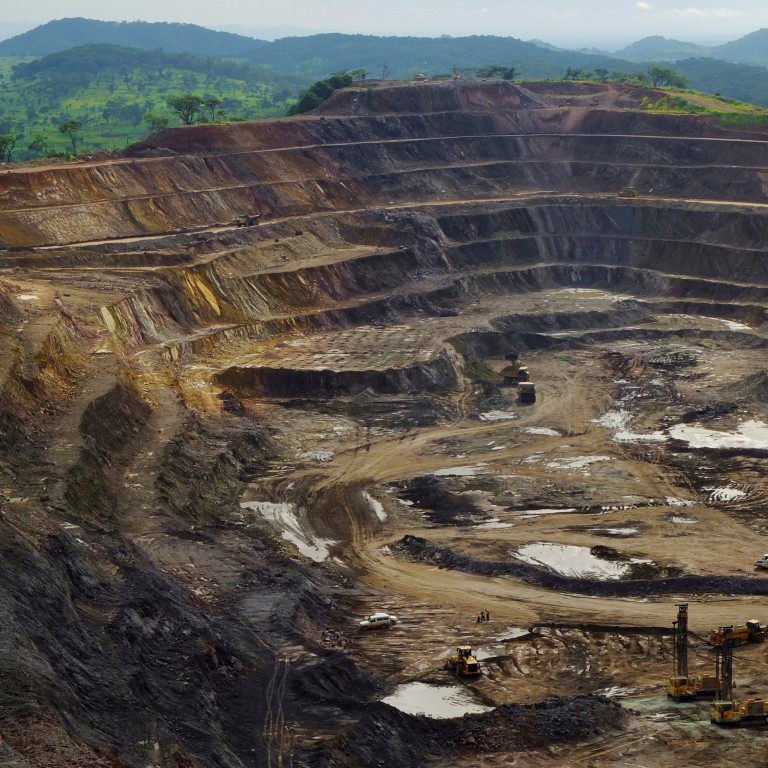
Chinese firm regains control of DR Congo copper mine after agreeing to reach solution with government over royalty disputes
- China Molybdenum had its operations at the massive Tenke Fungurume mine suspended after it was accused of not declaring thousands of tonnes of reserves
- The government has now lifted the suspension after an agreement that should pave the way for it to receive higher payments in future
China Molybdenum (CMOC) has regained control of its massive Tenke Fungurume copper and cobalt mine after the Democratic Republic of Congo withdrew a case it had filed against the Chinese mining giant.
The two have agreed to settle their dispute outside court, saying they would appoint an “internationally recognised third party to conduct an assessment for a definitive solution” to their dispute over royalty payments, a move that will probably ensure more revenue for the DRC in future.
Gecamines, a Congolese state-owned commodity trading and mining company, which holds 20 per cent of the Tenke mine, had sued the Chinese miner, accusing it of withholding information and for not declaring thousands of tonnes of reserves at the site, a move that allegedly denied Kinshasa much-needed funds.
On February 28, a commercial court in Lubumbashi, the Congolese mining capital in the southeast, suspended the firm from managing the mine and appointed a third-party administrator to run the mine for six months with the “responsibility of reconciling the two parties on divergent issues, namely access to technical information as well as the determination of the rights of the parties”.
Two Chinese nationals killed in DR Congo gold mine attack
But on Tuesday, DRC Prime Minister Sama Lukonde suspended court proceedings against the Chinese mining company.
Communications Minister Patrick Muyaya said in a statement on Twitter that the government had laid out “a road map to exit the crisis, along with a timeline”.
He added: “In the meantime, the judicial procedure remains suspended to restore a peaceful climate of exchange and harmony between the two parties.”
Kinshasa set up a commission in August to investigate reserves at the Tenke site to help determine the true value of the government’s shareholding through Gecamines and to “fairly lay claim to [its] rights”.
But as the commission got down to work in December, Sun Ruiwen, the chief executive of China Molybdenum, travelled to Kinshasa to meet President Félix Tshisekedi.
Two months later the pair held a video call to discuss plans to create a supply chain for “new energy metals”. Sun then returned to Kinshasa to meet the prime minister and Senate officials after the court imposed the suspension.
The company welcomed the government’s decision, saying in a statement on Wednesday that it “marks an important step forward in the communications between CMOC and the DRC government regarding the additional royalty payment for an increase of reserves at [the mine]”.
The company said that when Sun met Tshisekedi in December, the DRC made it clear that it wanted “CMOC to increase its investment in the DRC, and that the DRC government was committed to creating a favourable and stable business environment for companies to reach win-win cooperation”.
China Moly admitted that although the court order had not been executed, “misunderstandings have been caused and the peaceful and friendly environment was impacted”.
Sun said: “The DRC government has once again demonstrated its determination to honour contracts and protect the rights and interests of investors. This will facilitate the expedited resolution of the dispute within the contractual agreements and further strengthen our confidence in investing in the DRC.”
Sun has previously promised to “make every effort” to promote the Tenke project and another copper-cobalt mine in Kisanfu and “help create more local jobs in the DRC”.
China, the US and a Twitter tit-for-tat over Congo cobalt contracts
Policy and mining analyst Christian-Geraud Neema, wrote in an analysis for the China Africa Project: “The Congolese government is playing the appeasement card to avoid any probable form of judicial escalation – national or international – which would not benefit any of the parties.”
He said the DRC government’s statement confirms a certain level of influence of political authorities on the Congolese judiciary. He also said it “reveals not only the complexity of the Congolese political and mining environment, but also above all a certain capacity and dexterity of Chinese companies like China Moly to be able to manoeuvre there, resist and obtain concessions from the Congolese authorities”.
China Moly acquired its controlling stake in Tenke Fungurume in 2016 for US$2.65 billion from US mining firm Freeport-McMoRan and increased its stake to 80 per cent for US$1.14 billion in 2019. China Moly says it plans to invest US$2.51 billion to double production at the site, the world’s second-biggest cobalt mine.
Tenke Fungurume produced 209,100 tonnes of copper in 2021 and 18,500 tonnes of cobalt and aims to produce 20,500 tonnes of cobalt and 267,000 tonnes of copper this year.
China Moly also secured a 95 per cent stake in the Kisanfu mine from US-based Freeport-McMoRan in December 2020.
DRC reviews China contracts after president protests against poor deals
Although the DRC produces two-thirds of the global supply of cobalt – an essential component of electric vehicle batteries – the government says the country has not benefited from the resources.


